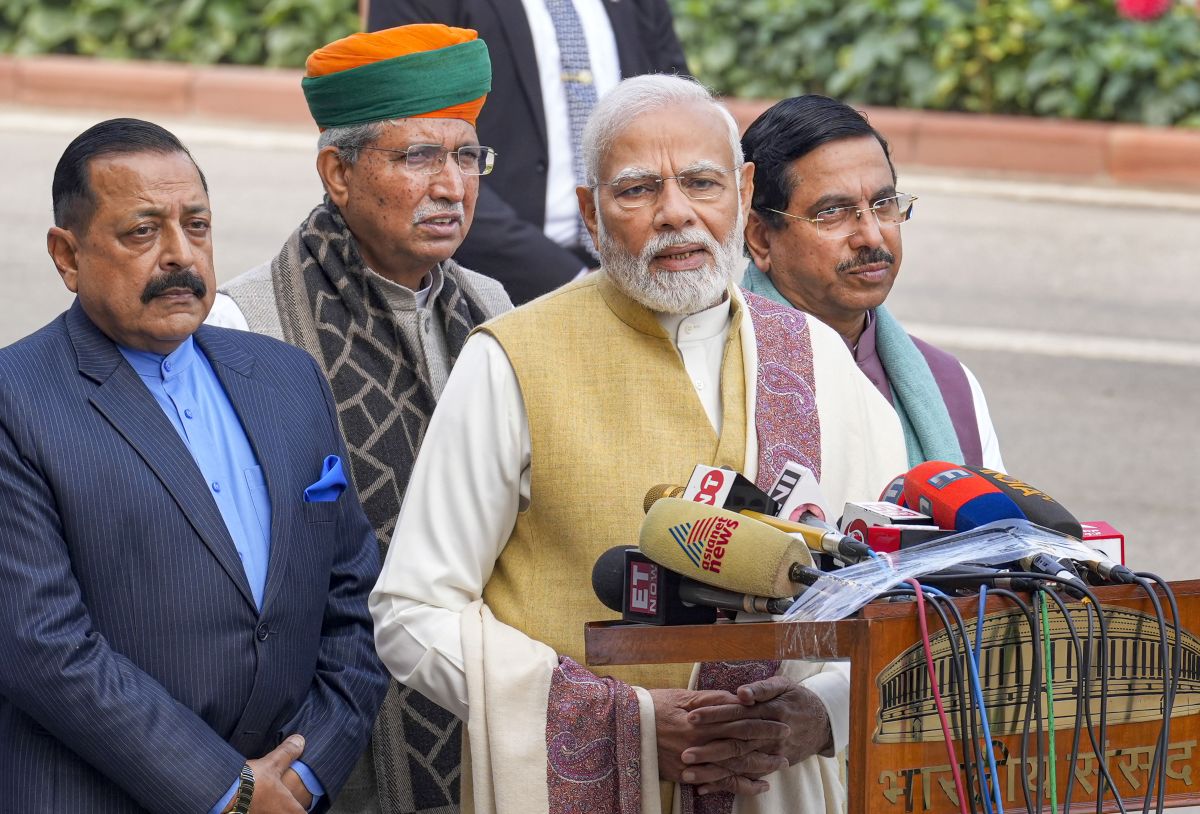Prime Minister Narendra Modi’s address following the announcement of the 2024 interim budget transcended a mere endorsement, transforming it into a compelling narrative about India’s journey towards becoming a developed nation by 2047. While acknowledging its interim status, Modi emphatically characterized the budget as inclusive and innovative, positioning it as a crucial milestone on this ambitious path.

The front and centre in Modi’s speech emphasised empowering India’s young population, the demographic dividend he often hails. He celebrated the allocation of ₹1 lakh crore for research and innovation, envisioning it as a launchpad for groundbreaking ideas and igniting entrepreneurial spirit. The expansion of tax exemptions for startups was presented as a catalyst for creating countless job opportunities for aspiring youth, laying the foundation for a dynamic and innovative future in India.
Recognizing infrastructure as the lifeblood of economic growth and societal progress, Modi highlighted the historic high of ₹11.11 lakh crore allocated for capital expenditure. This significant investment, he declared, would pave the way for constructing “21st-century modern infrastructure,” transforming the landscape of “Bharat.” The initiative to manufacture 40,000 modern “Vande Bharat” train coaches became a symbol of this modernization drive, promising to enhance the travel experience for millions and showcasing India’s technological advancements.
Beyond physical infrastructure, Modi addressed the needs of the most vulnerable sections of society. He underscored the government’s unwavering commitment to empowering the poor and middle class, citing ambitious social welfare programs. Building 2 crore more houses for the underprivileged and expanding the “Lakhpati Didis” initiative to empower 3 crore women entrepreneurs were presented as testaments to this commitment. Extending the Ayushman Bharat health insurance scheme to Anganwadi and ASHA workers further solidified the focus on strengthening the social safety net, ensuring greater access to healthcare for those who need it most.
Financial well-being is a cornerstone of societal progress, and Modi showcased various initiatives aimed at boosting income generation. The Rooftop Solar program, promising free electricity and additional income for rural families, resonated as a sustainable solution for both energy access and financial empowerment. The income tax relief scheme for the middle class was presented as a welcome financial reprieve, easing the burden on their wallets. For farmers, the Prime Minister highlighted measures like Nano DAP fertilizer, new livestock schemes, and an expanded PM Matsya Sampada Yojana, all aimed at enhancing their income and reducing agricultural expenses, leading to a more prosperous and stable farming community.
Modi concluded his address by reiterating his appreciation for Finance Minister Nirmala Sitharaman and her team, terming the budget “historic” and expressing his best wishes for all citizens. While acknowledging the interim nature of the plan, his overall message presented it as a stepping stone towards the larger goal of building a “developed India” by 2047. By empowering youth, fostering innovation, building modern infrastructure, strengthening social safety nets, and promoting income generation, the interim budget, as presented by the Prime Minister, aims to lay the foundation for a more inclusive, prosperous, and future-oriented India.




